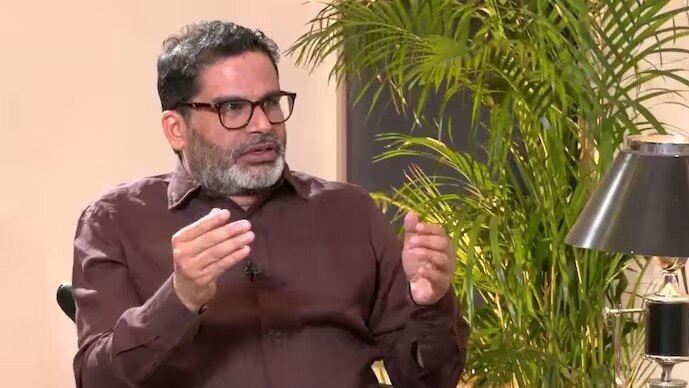Political strategist Prashant Kishore, whose predictions for India’s Lok Sabha elections were far from accurate despite his successful prediction that Modi would return as prime minister, said on Friday that the Bharatiya Janata Party (BJP) should win at least two of the three states — Haryana, Jharkhand and Maharashtra — when elections are held later this year. He suggested that if the BJP loses all three states in the upcoming elections, it will not be able to defend its coalition in Delhi. “It won’t,” he said.
Asked if his government in Delhi was in danger, he said: “I cannot say that the government will not be able to run but if that happens, the whole scenario that people are painting today… I think the leaders of the Indian Union understand this. That’s why they have said they will take a decision at the right time. So, if you are in the Opposition, my understanding is that you should keep everything aside and focus on those three states. And if you are the BJP, you have to save at least two of the three states no matter what. If they are not saved, you will see internal discontent and flight of allies.”
Kishore, however, clarified that internal discontent within the alliance could also be on the side of the allies: “At the end of the day, leaders follow the mood of the people. If your currency falls too much and you feel you cannot win, people start considering their options. Now, people are thinking that he (Modi) has lost but he has not lost.”
The BJP failed to win a majority of seats in the Indian Lok Sabha elections and is relying heavily on coalition partners such as Nitish Kumar’s JDU (12 seats), Chandrababu Naidu’s TDP (16 seats) and Eknath Shinde’s Shiv Sena (7 seats) in central constituencies.
Asked about Haryana where a merger of Jats, Dalits and Muslims has taken place in the recent Lok Sabha elections, Kishor said, “This merger of all three has happened before but despite that, the BJP won.”
He said the outcome of the Lok Sabha elections was a 50-50 contest and it was unclear who was leading in Haryana. The BJP and Indian National Congress won five seats each in Haryana. In 2019, the BJP won the state. In the state assembly elections, the saffron party won 40 out of 90 seats. It formed a coalition government with the JJP, which had broken away from the NDA.
The ace strategist said that MVA (Maha Vikas Aghadi) has an advantage in Maharashtra but it is not a sure thing. Explaining this, he said that in Maharashtra, the distribution of Muslim votes is not uniform but concentrated. For example, let’s say there are 20 lakh Muslim voters in a Lok Sabha seat. In state elections, they can occupy two out of four seats. That means, even if they win one Lok Sabha seat, they can only win two seats in state elections. It will be 50:50 in assembly elections, he explained.
Maharashtra state will hold elections later this year. In the Lok Sabha elections, the Indian National Congress emerged as the largest party, winning 13 seats. The old guard then added Sangli MP to the party, taking its tally to 14.
As for Jharkhand, Kishore predicted that the Indian Union would have an advantage as it rules the state. “In Jharkhand, besides SCs and Muslims, STs are also a factor, which is a weakness for the BJP. If they unite, it will be more than 50 percent.” Currently, the tribal state is ruled by the Indian National Congress and the Jharkhand Mukti Morcha.
Asked if he saw a change in the dynamics within the BJP, Kishore said if there was a change, it would be a slow one. “The way the Sangha works, as I understand it, is that even if they want to take a decision, they will do it slowly. Everything will be analysed. Everyone will take a breather.”
In India’s recently concluded Lok Sabha elections, the BJP won 240 seats, 32 short of a majority.
The saffron party is expected to form the government with the support of its pre-poll ally parties JDU, Chandrababu Naidu-led TDP, Eknath Shinde-led Shiv Sena (7), Chirag Paswan-led LJP (5) and Pawan Kalyan-led Jana Sena Party (2).

